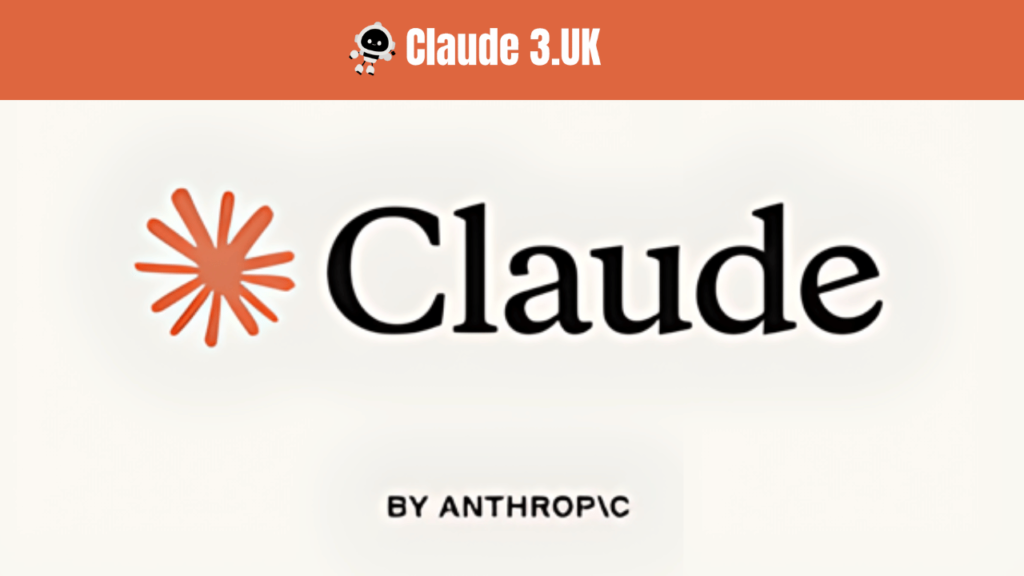Introduction
The advent of Claude 3 AI in Belgium marks a significant milestone in the field of artificial intelligence. As one of the most advanced AI models developed by Anthropic, Claude 3 has been integrated into various sectors in Belgium, showcasing its potential to revolutionize industries, improve efficiency, and drive innovation. This article explores the deployment, impact, and future prospects of AI in Belgium, offering a comprehensive overview of its applications and implications.
Background of Claude 3 AI
Claude 3 is the latest iteration in the Claude series of AI models developed by Anthropic, a leading AI research organization. Named after Claude Shannon, the father of information theory, the Claude series is designed to push the boundaries of natural language processing (NLP) and artificial intelligence. It builds upon the successes of its predecessors, offering enhanced capabilities in understanding, generating, and interacting with human language.
Key Features
- Advanced NLP: It excels in understanding and generating human language, making it highly effective for a wide range of applications, from customer service to content creation.
- Contextual Awareness: The AI model can understand context at a deeper level, allowing for more accurate and relevant responses.
- Scalability: It can be scaled to handle massive amounts of data and interactions, making it suitable for large-scale implementations.
- Ethical AI: Developed with a focus on ethical considerations, Claude includes mechanisms to minimize bias and ensure responsible AI usage.
Deployment of Claude 3 AI in Belgium
Belgium, with its strong emphasis on innovation and technology, has been an early adopter of Claude 3 AI. The deployment spans multiple sectors, each leveraging the AI’s unique capabilities to address specific challenges and improve overall efficiency.
Government and Public Services
The Belgian government has integrated Claude 3 AI into various public services to enhance citizen engagement and streamline operations. Key implementations include:
- E-Government Services: Claude powers chatbots and virtual assistants on government websites, providing citizens with instant access to information and support.
- Public Health: AI-driven analytics help in monitoring and managing public health data, enabling faster and more accurate responses to health crises.
- Smart Cities: It contributes to the development of smart city initiatives, optimizing urban planning, traffic management, and public safety.
Healthcare
The healthcare sector in Belgium has seen significant improvements with the adoption of Claude 3 AI. Applications include:
- Medical Diagnosis: It assists healthcare professionals in diagnosing diseases by analyzing patient data and providing evidence-based recommendations.
- Patient Care: AI-powered virtual assistants offer patients personalized care advice, appointment scheduling, and medication reminders.
- Research and Development: It accelerates medical research by analyzing vast datasets, identifying patterns, and predicting outcomes.
Education
Belgium’s education system benefits from Claude 3 AI through enhanced learning experiences and administrative efficiency:
- Personalized Learning: AI-driven platforms provide students with customized learning paths, adaptive assessments, and real-time feedback.
- Teacher Support: It offers educators tools for lesson planning, grading, and student performance analysis.
- Administrative Efficiency: AI streamlines administrative tasks, such as admissions, scheduling, and resource management.
Business and Industry
Belgian businesses across various industries are leveraging AI to drive innovation and competitiveness:
- Customer Service: AI chatbots and virtual assistants improve customer support by providing instant, accurate responses and handling routine inquiries.
- Supply Chain Management: Claude 3 enhances supply chain efficiency through predictive analytics, demand forecasting, and inventory optimization.
- Marketing and Sales: AI-powered tools analyze consumer behavior, optimize marketing campaigns, and generate leads.
Finance
The financial sector in Belgium utilizes Claude 3 AI for improved risk management, customer service, and operational efficiency:
- Fraud Detection: AI algorithms detect fraudulent activities in real-time, reducing financial losses and enhancing security.
- Customer Engagement: Virtual assistants provide customers with financial advice, account management, and support.
- Investment Strategies: Claude 3 analyzes market trends and economic indicators to inform investment decisions and portfolio management.
Impact of Claude 3 AI in Belgium
The deployment of Claude 3 AI has had a profound impact on various aspects of Belgian society, driving both economic and social benefits.
Economic Growth
The integration of AI has contributed to economic growth by enhancing productivity, creating new job opportunities, and fostering innovation. Key areas of impact include:
- Increased Efficiency: Businesses and public services have become more efficient, reducing costs and improving service quality.
- Job Creation: While AI automates certain tasks, it also creates new roles in AI development, data analysis, and tech support.
- Innovation: Claude 3 has spurred innovation across industries, leading to the development of new products, services, and business models.
Social Benefits
Claude 3 AI has also generated significant social benefits, improving the quality of life for Belgian citizens in various ways:
- Improved Public Services: Enhanced government services provide citizens with better access to information and support.
- Healthcare Advancements: AI-driven healthcare applications lead to better patient outcomes and more efficient medical practices.
- Educational Opportunities: Personalized learning tools and resources empower students and educators, fostering a more effective educational environment.
Ethical Considerations and Challenges
The deployment of Claude 3 AI in Belgium is not without its challenges. Ethical considerations and potential risks need to be addressed to ensure responsible AI usage:
- Bias and Fairness: Efforts are made to minimize AI bias and ensure fair treatment of all individuals, regardless of background.
- Privacy Concerns: Protecting personal data and maintaining privacy are critical in the deployment of AI applications.
- Regulation and Oversight: Developing robust regulatory frameworks and oversight mechanisms is essential to guide the ethical use of AI.
Future Prospects of Claude 3 AI in Belgium
The future of Claude 3 AI in Belgium looks promising, with continued advancements and wider adoption expected across various sectors. Key areas of focus include:
Technological Advancements
Ongoing research and development will lead to further enhancements in AI capabilities, enabling even more sophisticated applications:
- Improved NLP: Advances in natural language processing will allow for more nuanced and accurate AI interactions.
- Integration with Emerging Technologies: Combining AI with technologies such as blockchain, IoT, and quantum computing will unlock new possibilities.
- Enhanced Security: Developing more robust security measures will ensure the safe and secure use of AI.
Broader Adoption and Integration
As AI becomes more accessible and affordable, its adoption across different sectors will continue to grow:
- SME Adoption: Small and medium-sized enterprises will increasingly leverage AI to gain a competitive edge.
- Cross-Sector Collaboration: Collaboration between industries, academia, and government will drive innovative AI applications.
- International Cooperation: Belgium’s involvement in international AI initiatives will foster knowledge exchange and global advancements.
Ethical and Regulatory Developments
Ensuring the ethical and responsible use of AI will remain a priority, with ongoing efforts to develop and refine regulatory frameworks:
- Ethical AI Guidelines: Establishing comprehensive guidelines for ethical AI development and deployment.
- Public Awareness and Engagement: Educating the public about AI and involving them in discussions about its impact and governance.
- Global Standards: Contributing to the development of international standards for AI ethics and regulation.

Case Studies of Claude 3 AI in Belgium
To illustrate the practical applications and impact of Claude 3 AI, this section presents several case studies from different sectors in Belgium.
Case Study 1: AI in Public Health
Organization: Belgian Ministry of Health
Challenge: Enhancing public health monitoring and response.
Solution: Claude 3 AI was implemented to analyze health data, track disease outbreaks, and predict future health trends.
Impact: Improved response times to health crises, better resource allocation, and more effective public health strategies.
Case Study 2: AI in Education
Organization: Flemish Community Education Network
Challenge: Personalizing learning experiences for students.
Solution: Claude 3 AI was used to develop adaptive learning platforms that tailor educational content to individual student needs.
Impact: Increased student engagement and performance, reduced dropout rates, and more efficient teaching practices.
Case Study 3: AI in Finance
Organization: KBC Bank
Challenge: Enhancing fraud detection and customer service.
Solution: Claude 3 AI algorithms were integrated to monitor transactions for fraudulent activities and provide virtual financial advisors.
Impact: Reduced instances of fraud, improved customer satisfaction, and streamlined banking operations.
Conclusion
Claude 3 AI has made a significant impact in Belgium, demonstrating the transformative potential of advanced artificial intelligence. From enhancing public services and healthcare to driving innovation in education and finance, the applications of Claude 3 AI are vast and varied.
As Belgium continues to embrace this technology, the focus on ethical considerations and responsible use will be crucial in ensuring that the benefits of AI are realized while minimizing potential risks. The future of Claude 3 AI in Belgium is bright, promising continued advancements and positive societal changes.
FAQs
How is Claude 3 AI being used in Belgium?
Claude 3 AI is used in various sectors in Belgium, including government services, healthcare, education, business, and finance. It enhances public services, supports medical diagnosis, personalizes learning, improves customer service, and optimizes supply chain management.
What are the benefits of using Claude 3 AI in Belgium?
Claude 3 AI improves efficiency, drives innovation, and enhances the quality of services. It leads to better public health monitoring, personalized education, improved financial security, and more effective business operations.
How does Claude 3 AI improve public services in Belgium?
Claude 3 AI powers chatbots and virtual assistants for government websites, provides real-time public health data analysis, and contributes to smart city initiatives, optimizing urban planning and public safety.
What role does Claude 3 AI play in the healthcare sector in Belgium?
Claude 3 AI assists in diagnosing diseases, providing personalized patient care through virtual assistants, and accelerating medical research by analyzing large datasets and identifying patterns.
How is Claude 3 AI integrated into the education system in Belgium?
Claude 3 AI is used to create adaptive learning platforms that provide personalized learning experiences for students, support teachers with lesson planning and grading, and streamline administrative tasks.
What impact has Claude 3 AI had on the business sector in Belgium?
In business, Claude 3 AI improves customer service with chatbots, enhances supply chain efficiency through predictive analytics, and optimizes marketing strategies by analyzing consumer behavior.
How does Claude 3 AI enhance the financial sector in Belgium?
Claude 3 AI enhances fraud detection, provides virtual financial advisors for customer support, and helps in making informed investment decisions by analyzing market trends and economic indicators.
What are the ethical considerations of deploying Claude 3 AI in Belgium?
Key ethical considerations include minimizing AI bias, protecting privacy, and developing robust regulatory frameworks to ensure responsible AI usage. Ongoing dialogue and regulation are essential to address these concerns.

1 thought on “Claude 3 AI in Belgium”